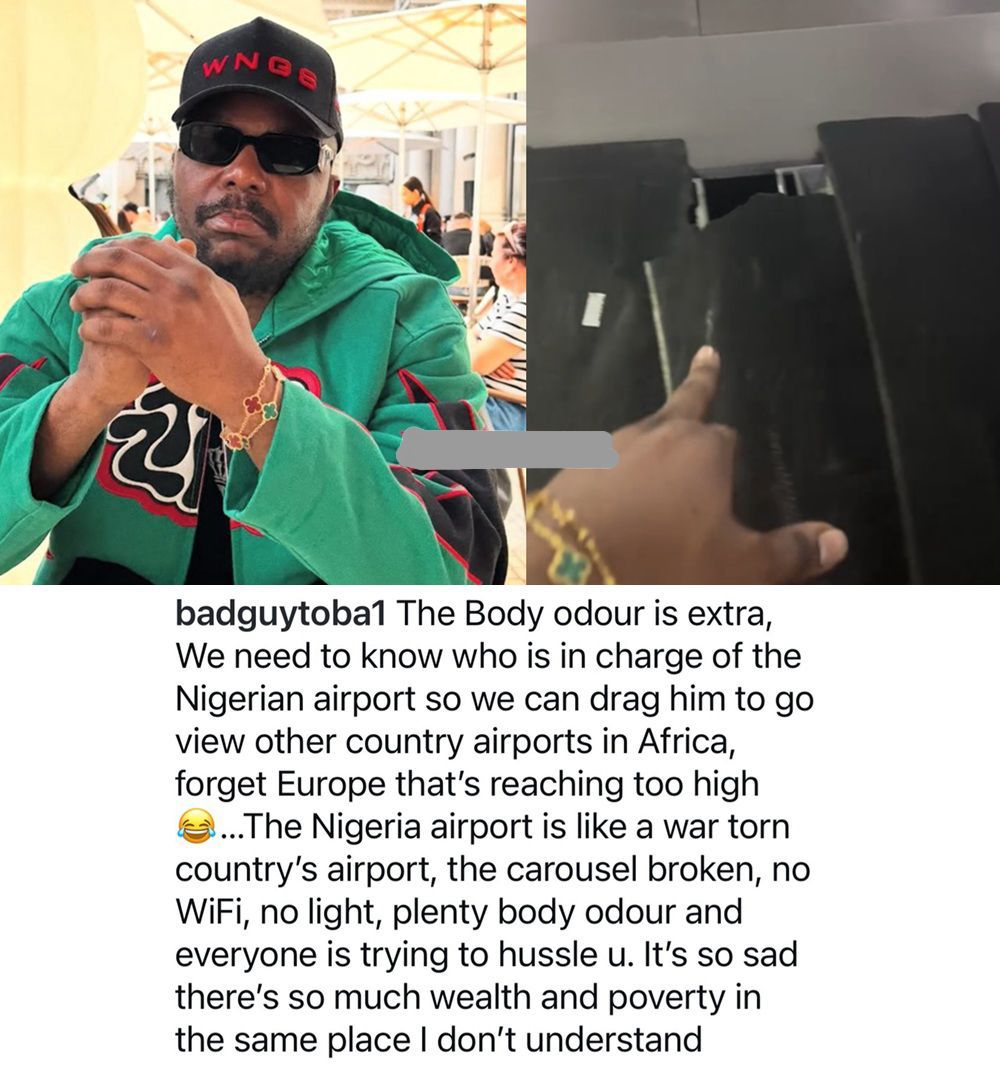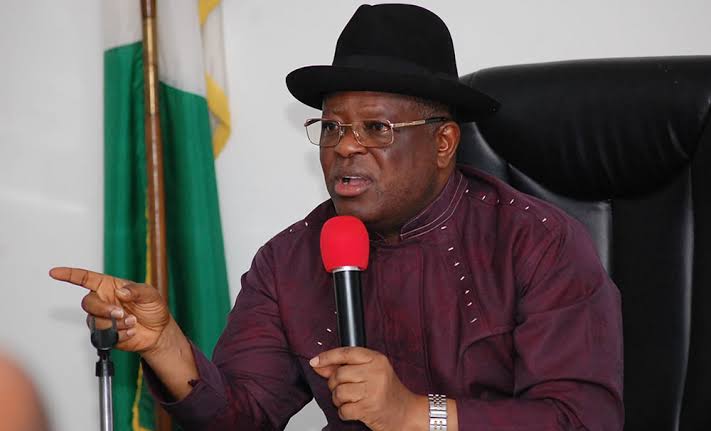
Lagos International Airport: A National Embarrassment? Socialite Toba Laments Poor State of Nigeria’s Gateway

In a scathing critique of the state of Nigeria’s premier international gateway, socialite and influencer Toba, known online as @badguytoba1, has voiced his frustration over the deplorable conditions at the Murtala Muhammed International Airport in Lagos. His comments, which have since sparked widespread debate online, paint a grim picture of an airport that should serve as a symbol of national pride but instead resembles, in his words, a \"war-torn country\'s airport.\"
Toba\'s outcry, shared via social media, highlights a series of infrastructural and service deficiencies that have plagued Nigeria’s busiest airport for years. His observations include broken baggage carousels, lack of basic amenities such as WiFi and electricity, foul odors, aggressive touting, and a stark contrast between the wealth of some travelers and the dire poverty evident within the airport premises.
\"The body odour is extra,\" Toba lamented in his viral post. \"We need to know who is in charge of the Nigerian airport so we can drag him to go view other country airports in Africa. Forget Europe, that\'s reaching too high. The Nigerian airport is like a war-torn country\'s airport—carousel broken, no WiFi, no light, plenty body odour, and everyone is trying to hustle you. It\'s so sad; there\'s so much wealth and poverty in the same place. I don’t understand.\"
A Recurring Complaint
Toba\'s grievances are not isolated. Travelers, both Nigerian and foreign, have long expressed dissatisfaction with the conditions at Murtala Muhammed International Airport. Complaints range from inefficient security checks and corruption among airport staff to outdated facilities that fail to meet international standards.
The airport, which serves as the main gateway into Nigeria, is often the first impression that visitors have of the country. Yet, instead of a welcoming and efficient experience, many travelers encounter long delays, dysfunctional infrastructure, and an environment that lacks the basic comfort expected of a modern airport.
For years, Nigeria’s aviation authorities have made promises of improvements and renovations. While some efforts have been made, such as the recent commissioning of a new terminal, these changes have done little to address the core issues plaguing the airport.
The Problem with Infrastructure and Management
One of the most glaring issues at Lagos International Airport is its outdated infrastructure. Built decades ago, the airport has struggled to keep up with the increasing volume of passengers and global aviation standards. Broken escalators, dysfunctional air conditioning, and limited seating areas make traveling through the airport an unpleasant experience.
Moreover, frequent power outages mean that passengers sometimes find themselves in dimly lit corridors, adding to the overall sense of neglect. The lack of free public WiFi, a standard feature in most international airports, further compounds the frustration of travelers who need internet access to coordinate their journeys.
Adding to the chaos, baggage claim areas often become scenes of disorder due to malfunctioning carousels. Passengers are left to fend for themselves, searching for their luggage in a sea of confusion. This inefficiency not only frustrates travelers but also raises concerns about security and potential baggage theft.
A Breeding Ground for Touts and Corruption
Beyond infrastructural failures, the airport is notorious for the aggressive presence of touts and unscrupulous officials. Many passengers report being harassed for bribes, with officials demanding money at various checkpoints. Some travelers have even shared experiences of being extorted before they can retrieve their luggage or pass through immigration.
For a country that aims to position itself as a leading business hub in Africa, the presence of such disorder at its main international airport is deeply damaging to Nigeria’s reputation. Foreign investors and tourists often leave with negative impressions, discouraging further business and tourism opportunities.
How Does Lagos Compare to Other African Airports?
Toba’s statement that Nigerian airport authorities should visit other airports in Africa is particularly significant. Many African countries, some with smaller economies than Nigeria’s, have managed to upgrade their airports to world-class standards.
For instance, Ghana’s Kotoka International Airport in Accra has been praised for its modern facilities, efficient immigration services, and overall cleanliness. Ethiopia’s Bole International Airport has undergone significant expansions, positioning itself as a major transit hub in Africa. Rwanda’s Kigali International Airport, despite being much smaller, is frequently lauded for its organization and cleanliness.
The question then arises—why can’t Nigeria, Africa’s largest economy, maintain an airport that meets international standards?
Calls for Accountability and Reform
In the wake of Toba’s viral remarks, many Nigerians have echoed his sentiments, calling for urgent reforms in the country’s aviation sector. The Federal Airports Authority of Nigeria (FAAN), which oversees airport operations, has often come under fire for mismanagement and lack of accountability.
Critics argue that poor maintenance, bureaucratic inefficiencies, and corruption have all contributed to the current state of affairs. Without a fundamental change in how the airport is managed, it is unlikely that travelers will see any meaningful improvements soon.
There have been proposals for private sector involvement in airport management, with some advocating for full privatization as a means of ensuring better efficiency. Others believe that stricter oversight and transparent use of funds allocated for airport maintenance could go a long way in resolving the ongoing issues.
A National Image Crisis
An international airport is more than just a transit point—it is a reflection of a country’s identity and progress. When a country’s main airport is in a state of disrepair, it sends a message of negligence and mismanagement to the rest of the world.
Toba’s remarks have reignited discussions about the need for serious infrastructural reforms in Nigeria. If the country truly aspires to be a global player, it must begin with the basics—ensuring that its international airport is not an embarrassment to its people and visitors alike.
As Nigerians continue to voice their frustration, the onus is now on the authorities to take concrete steps toward transforming Lagos International Airport into a facility that citizens can be proud of. Whether or not these complaints will lead to meaningful change remains to be seen. However, one thing is clear—the status quo is no longer acceptable.


